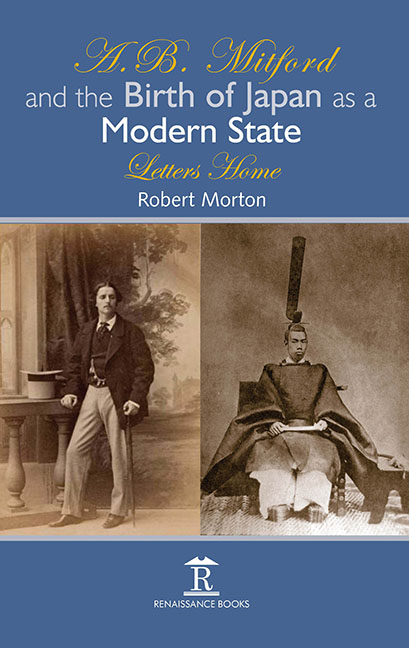Book contents
- Frontmatter
- Contents
- Foreword
- Preface
- List of Plates
- 1 Yokohama: October – December 1866
- 2 Edo: October 1866 – May 1867
- 3 The Shogun: January – April 1867
- 4 An Adventurous Journey: July – August 1867
- 5 The Birth of the New Japan: October 1867 – March 1868
- 6 Kyoto: February – March 1868
- 7 Osaka: March – July 1868
- 8 Tokyo: August 1868 – January 1870
- 9 After Japan: 1870 – 1906
- 10 The Return: February – March 1906
- 11 The Legacy: 1906 –
- Notes
- Bibliography
- Acknowledgements
- Index
3 - The Shogun: January – April 1867
Published online by Cambridge University Press: 30 April 2022
- Frontmatter
- Contents
- Foreword
- Preface
- List of Plates
- 1 Yokohama: October – December 1866
- 2 Edo: October 1866 – May 1867
- 3 The Shogun: January – April 1867
- 4 An Adventurous Journey: July – August 1867
- 5 The Birth of the New Japan: October 1867 – March 1868
- 6 Kyoto: February – March 1868
- 7 Osaka: March – July 1868
- 8 Tokyo: August 1868 – January 1870
- 9 After Japan: 1870 – 1906
- 10 The Return: February – March 1906
- 11 The Legacy: 1906 –
- Notes
- Bibliography
- Acknowledgements
- Index
Summary
We are subjected to the insults of five arrogant Powers; conquest by them seems certain to be our fate. Thinking of this, I can neither sleep … nor … swallow food … The subjugation of the hated foreigner is the greatest of the national tasks that faces us … if, through idleness, we fail to achieve success, how much the greater will be our crime! The deities of the universe themselves would punish us. Be most diligent, therefore!
THE SEVENTEEN-YEAR-OLD SHOGUN Iemochi must have felt in despair when he received this harangue from Emperor Kōmei in 1864. His predecessors had enjoyed unquestioned authority since the Tokugawa dynasty had been founded in 1603 and the Emperors were consigned to impotent irrelevance in Kyoto. But the diminishing power of the Shogunate meant that Iemochi was too weak to argue with Kōmei but also too weak to do anything to expel the foreigners.
The Shogunate had become ‘effete’, in Mitford's opinion, the ‘mere slave’ of the Emperor. Japan's earlier rulers, he felt, would not have hesitated in the face of the challenge of dealing with the Western powers, but would ‘proudly have taken upon themselves the responsibility of giving the answer in one sense or the other’ – they would either have engaged with Westerners or got them out of Japan. But Iemochi had only been twelve when he became Shogun and never had the chance to become an effective leader, dying at the age of twenty, of beriberi, a disease which afflicted the upper classes in Japan. They ate polished rice which had had its husks taken off, removing the thiamine (vitamin B1), which we need to stay healthy. Ordinary people, who ate the husks, were spared this disease. The death occurred on 29 August, but was not officially announced until 28 September six days before Mitford's arrival in the country. Japan was therefore nominally in mourning when Mitford landed – he was told that Iemochi's officers could not shave or wash for twenty-one days, ‘so we hasten to get over our interviews before their Excellencies become too dirty. Luckily the weather is cool.’
- Type
- Chapter
- Information
- A. B. Mitford and the Birth of Japan as a Modern StateLetters Home, pp. 41 - 59Publisher: Amsterdam University PressPrint publication year: 2017



